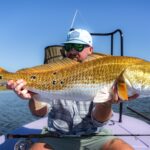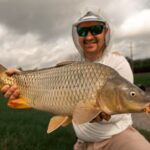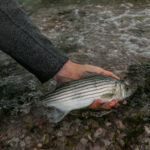
Louisiana Bull Reds Up for Harvest Again: H.B. 604 Must Not Pass
Photo Credit: Carter Abramson | Trevor Johnson Every now and then, we encounter something so
By Will Poston, Policy Associate
This Wednesday, November 16th, at 6pm EST, NOAA Fisheries will host a public webinar to hear suggestions for updating the National Saltwater Recreational Fisheries Policy. This policy is periodically updated to best reflect the priorities and needs of a very diverse recreational angling sector. So, this update will draw from your public comments—as well as themes that emerged from the Saltwater Recreational Fisheries Summit this past spring (March 2022)—and will ultimately be a guiding document for fishery managers across the country. This is a great opportunity to share your perspectives with NOAA Fisheries and positively influence all levels of management to ensure abundant, sustainable fisheries for the long-term.
Before we share some of our high-level priorities, here are some important links:
While the revised policy won’t necessarily dictate all recreational fishery management actions moving forward, it will provide direction to the eight Fishery Management Councils and other bodies for how to manage recreational fisheries. Broadly speaking, there is a lot to support in the 2015 version of the policy, but there are certainly areas where we can build upon and improve the document, as a lot has changed in just the past seven years.
The core topics we want to see greater focus on in the revised policy include: recreational data and citizen science; climate-resilient fisheries; and keeping United States’ fisheries management strong. As is also true in our fisheries, all of these priorities are somewhat interrelated. Remember, this policy is mainly for federal fisheries management, but state and other interjurisdictional bodies will certainly be paying attention, as well.
These are just some of our thoughts. We will be submitting a more complete formal comment letter ahead of the December 31st comment deadline. However, we wanted to make sure that interested anglers had some background and ideas ahead of the upcoming NOAA webinar. We encourage folks to register for the November 16th webinar and share some of their perspectives. Again, you do not need to use our ideas word-for-word by any means—this was just meant to be a quick primer.
Thanks for taking a minute to read this, and big props if you attend the webinar or submit formal comments—your friends at ASGA and your fisheries thank you!

Photo Credit: Carter Abramson | Trevor Johnson Every now and then, we encounter something so

This past weekend, ASGA proudly sponsored the Dirty Carp Tournament in Louisiana — and no, you didn’t misread that.

After years of data pouring in from The Albie Project, advocacy, persistence, and support from

This morning, the Connecticut Environment Committee held a hearing on House Bill 6248, a bill
We rely on our members and donations to keep fighting for a sustainable tomorrow in marine conservation.
GIVE THE GIFT OF FISHERIES CONSERVATION THIS HOLIDAY SEASON. SHOP ASGA GOODS THAT FUND FISHERIES RESEARCH & ADVOCACY CAMPAIGNS
JOIN ASGA IN CALLING FOR CRITICAL MANAGEMENT ACTION AFTER YEARS OF SPAWN FAILURES & POOR MANAGEMENT.
By using this website, you agree to our use of cookies. We use cookies to provide you with a great experience and to help our website run effectively. To learn more, please review our privacy policy.
One Response
i strongly believe that recreational hms catches are highly under reported.
good management requires good data.
species like bluefin tuna seem to have been making a comeback. with increased harvest (many more fisherman if nothing else) it would be a tragedy to have bad data result in bad management decisions.
i think an extremely super simple mobile reporting app needs to be highly promoted.
also, i would encourage more study of catch and release methods and mortality rates of giant bluefin and over slot striped bass in particular – as to be able to increase promotion of better release practices backed by hard data.